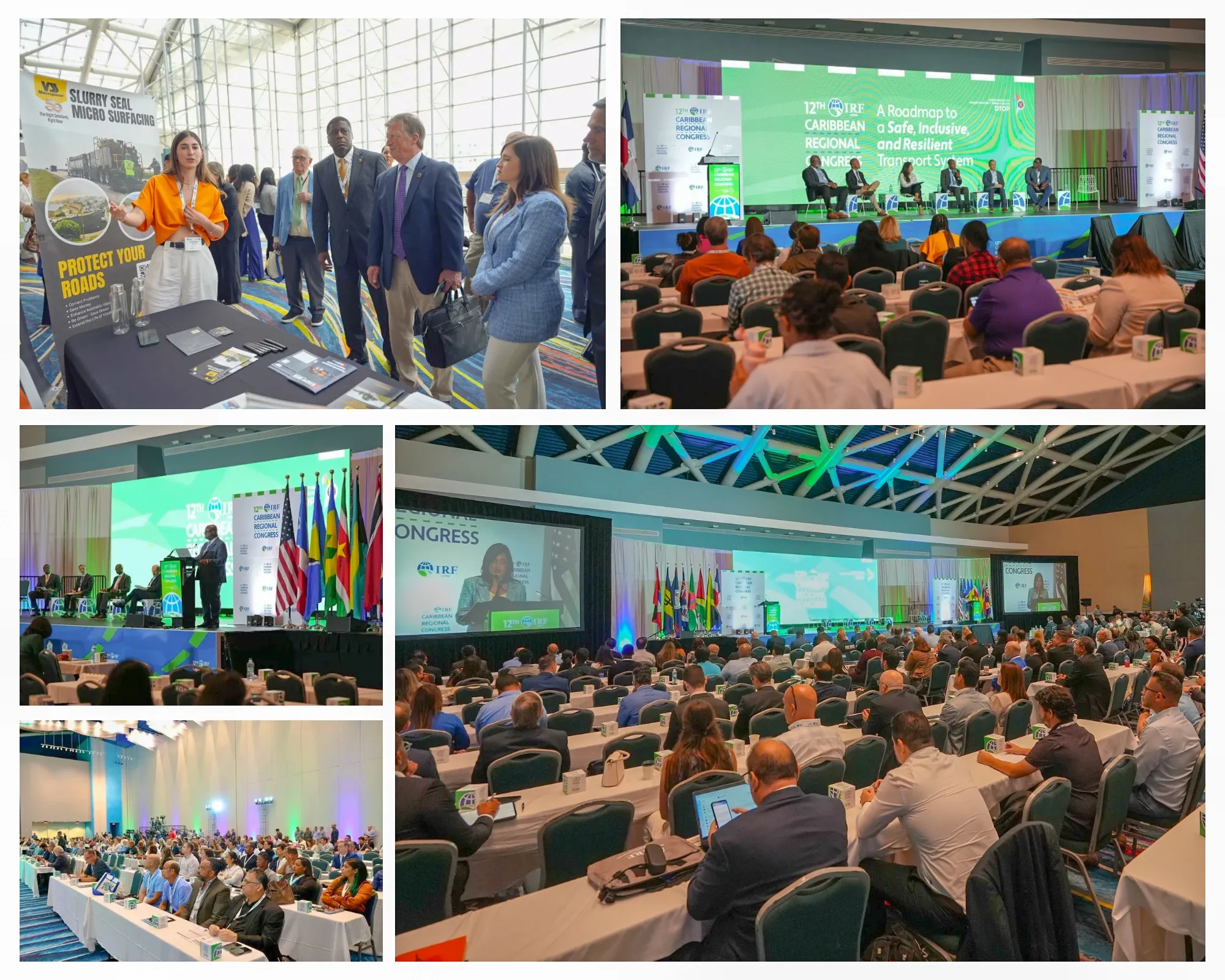Transport Minister sets ambitious Vision at IRF Caribbean Regional Congress. Returning to Montego Bay, Jamaica, IRF’s 5th Caribbean Regional Congress was dominated this year by discussions focused on reducing injury risk through coordinated action by public and private sector stakeholders. Close to 100 participants from a host of Caribbean nations have reaffirmed a vision for roads free from death and serious injury.
Many of Jamaica’s government departments with a role in achieving this vision were prese
July 5, 2016
Read time: 3 mins
RSSTransport Minister sets ambitious Vision at IRF Caribbean Regional Congress
Returning to Montego Bay, Jamaica,3918 IRF Washington’s 5th Caribbean Regional Congress was dominated this year by discussions focused on reducing injury risk through coordinated action by public and private sector stakeholders. Close to 100 participants from a host of Caribbean nations have reaffirmed a vision for roads free from death and serious injury.
Many of Jamaica’s government departments with a role in achieving this vision were present on the occasion. These included the Ministries of Transport and Mining; Economic Growth and Job Creation; Health; Local Government and Community Development, as well as specialised agencies in charge of national works, and road maintenance.
In his keynote address, Minister of Transport and Mining the Hon. Lester ‘Mike’ Henry, CD, MP emphasised the value of IRF’s regional gathering of roads and transportation professionals, held every year since 2012. “This Congress is the only one for the Region and your commitment to this task is greatly appreciated,” Henry said. Noting the goals and timeline of the UN Decade of Action for Road Safety, he stressed the importance for Caribbean countries, such as Jamaica, to make a profound impact in reducing road traffic injuries, crashes and fatalities. He said this could be achieved by introducing well-tried techniques such as safety audits and inspections of the road network, as also encouraged by IRF.
Lastly, the Minister called for the establishment of a designated “Road Safety Fund for Caribbean Countries” to ensure that nations are able to implement the road safety measures. These would would arrest the prevalence of traffic crashes through the requisite Road Safety Management processes, such as the ones that already exist in the best-performing countries.
“Caribbean countries face the key challenges of many low- and middle-income countries. These include unsafe roads, unsafe vehicles, and the need to improve road user behaviour through better enforcement, stronger laws, and increased appreciation of the penalties and the reasons for the penalties in order to create more effective deterrence of dangerous behaviour,” said Dr Soames Job, global lead for road safety and head of the Global Road Safety Facility at the World Bank.
Dr Job also said the IRF Caribbean Road Safety Congress “represents a valuable practical step forward. It allowed the experience of those who have succeeded in road safety in other countries to be shared with the Caribbean. The congress achieved this not only because it had the right experts but because it had the right audience: those working in road safety in the Caribbean including senior officials of government. The IRF congress also had the right atmosphere, providing the opportunity for formal presentations, for active group discussions, and for detailed face-to-face talks on the particular nature of the road safety challenges in countries of the Caribbean and ways these challenges may be addressed.”
Returning to Montego Bay, Jamaica,
Many of Jamaica’s government departments with a role in achieving this vision were present on the occasion. These included the Ministries of Transport and Mining; Economic Growth and Job Creation; Health; Local Government and Community Development, as well as specialised agencies in charge of national works, and road maintenance.
In his keynote address, Minister of Transport and Mining the Hon. Lester ‘Mike’ Henry, CD, MP emphasised the value of IRF’s regional gathering of roads and transportation professionals, held every year since 2012. “This Congress is the only one for the Region and your commitment to this task is greatly appreciated,” Henry said. Noting the goals and timeline of the UN Decade of Action for Road Safety, he stressed the importance for Caribbean countries, such as Jamaica, to make a profound impact in reducing road traffic injuries, crashes and fatalities. He said this could be achieved by introducing well-tried techniques such as safety audits and inspections of the road network, as also encouraged by IRF.
Lastly, the Minister called for the establishment of a designated “Road Safety Fund for Caribbean Countries” to ensure that nations are able to implement the road safety measures. These would would arrest the prevalence of traffic crashes through the requisite Road Safety Management processes, such as the ones that already exist in the best-performing countries.
“Caribbean countries face the key challenges of many low- and middle-income countries. These include unsafe roads, unsafe vehicles, and the need to improve road user behaviour through better enforcement, stronger laws, and increased appreciation of the penalties and the reasons for the penalties in order to create more effective deterrence of dangerous behaviour,” said Dr Soames Job, global lead for road safety and head of the Global Road Safety Facility at the World Bank.
Dr Job also said the IRF Caribbean Road Safety Congress “represents a valuable practical step forward. It allowed the experience of those who have succeeded in road safety in other countries to be shared with the Caribbean. The congress achieved this not only because it had the right experts but because it had the right audience: those working in road safety in the Caribbean including senior officials of government. The IRF congress also had the right atmosphere, providing the opportunity for formal presentations, for active group discussions, and for detailed face-to-face talks on the particular nature of the road safety challenges in countries of the Caribbean and ways these challenges may be addressed.”









